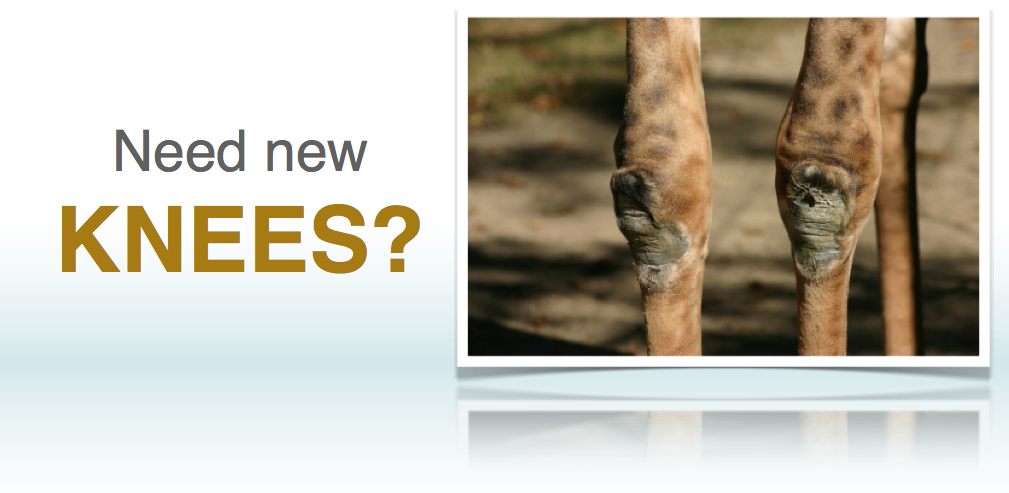This is a post from Mike Cuthbert whose blog unfortunately is no longer active. It’s real advice for knee replacement recovery, funny and most importantly correct. Enjoy!
I am undoubtedly not typical of a knee replacement patient but, having gone through the procedure twice in the past five years, I feel qualified to offer some advice. At least, these are some of the changes in your life you might look out for as you go through the process of the replacement. Yes, it is not merely an operation; it is a process, the most important part of which starts in the knee replacement recovery room.
1. Rehab is everything. The operation takes a couple of hours; the rehab takes quite a bit longer so plan to start rehab as soon as possible.
2. Learn to manage your pain in the hospital and don’t be macho or Amazonian about managing it at home. Pain wrecks rehab, destroys sleep and exhausts you. The professionals tell us that not managing pain ( that means not taking your pain medicine consistently) also slows recovery drastically.
My rule of thumb: when my pain goes over 5 when I am doing my exercises, I know I haven’t been taking enough pain medicine or in a timely manner. Keep track of when you take your medicine, after a bit it is hard to remember when you actually took a pill last.
3. Rehab Is Tough: Once home and started with a therapist or by yourself or at an outpatient rehab facility upon discharge from the hospital, learn to manage your pain meds. I took my pain meds regularly
Without the pain meds, the therapy is limited by pain and not as productive. The goal is to regain “Range of Motion” in the joint and to do that you have to take your knee beyond where pain would stop you. BUT—see #4
4. Don’t go crazy and over-do it all at once, when your pain meds kick in. Learn to exercise to a stretch that you can feel discomfort even with pain meds but not pain. To go any further asks for pulled muscles that will slow your knee replacement recovery.
5. Have the operation in the summer months, during re-runs on TV. You won’t want to watch much anyway and the only sports on during the summer, baseball, can help you get to sleep anyway.
6. Do not plan to read War and Peace during recuperation. I find my attention span the first few weeks was limited to a few pages of Dr. Seuss at a time. Similarly, don’t plan to write anything meaningful.
Many pages of my journal have these odd dribbles of ink off the page where my pen went when I fell asleep during a short entry.
7. Welcome visitors but don’t be afraid to let them know when you can’t remember their names any more from fatigue.
8. Plan to start a diet. I lost twenty pounds in less than a month because I didn’t want to eat much at all and didn’t need to. I have suggested that my orthopedic surgeon market his “Joint Replacement and Weight Loss System.”
9. Sleep whenever you feel sleepy. Usual sleep patterns are destroyed anyway so take it when you can get it. You’re not going to be going anywhere during the day and, if you followed suggestion #5, there’s going to be nothing you’ll miss on TV anyway.
The best nap is the one after PT!!
P.S – Check out my Amazon book on How to Fast Track Your Recovery http://goo.gl/bqybX4

